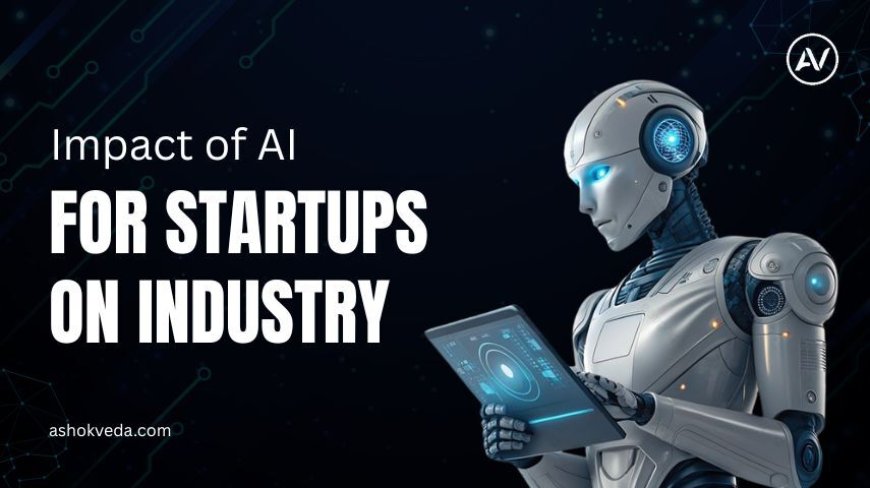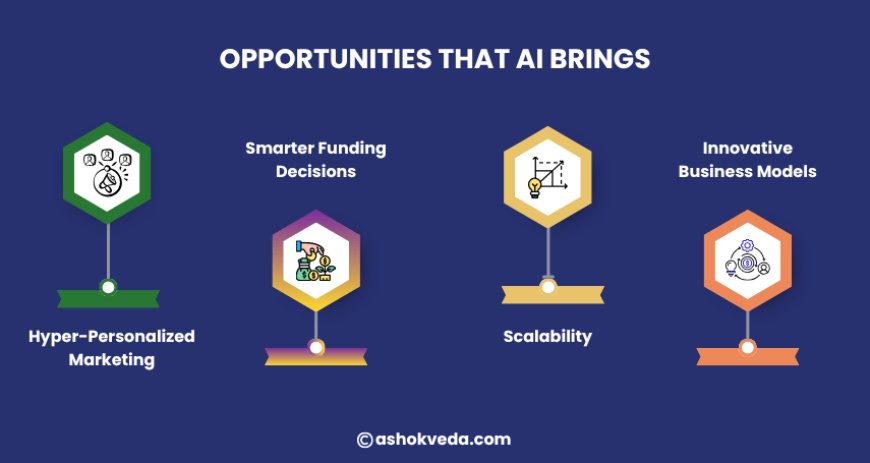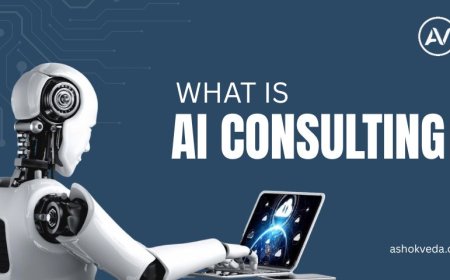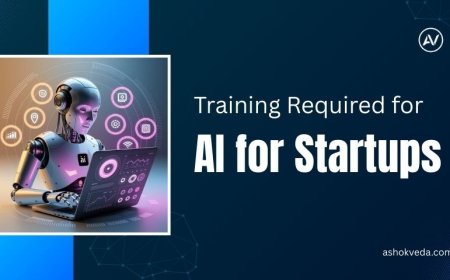Rising Impact of AI for Startups in Shaping Future Industries
Discover how AI for startups is transforming industries, driving innovation, boosting productivity, and giving new businesses a powerful competitive edge.

Startups are redefining industries with their innovative and daring ideas in today's fast-paced world. But behind every breakthrough, there’s an invisible force driving transformation: Artificial Intelligence (AI). AI, once thought futuristic, is now the foundation of contemporary business strategy. For startups, it’s more than just technology; it’s a survival tool, a growth accelerator, and a competitive advantage. From automating daily tasks to predicting market trends, AI for startups is levelling the playing field against industry giants.
Still, many entrepreneurs question whether AI is worth the time and money. The truth is, those who harness it today are shaping the future, while those who hesitate risk being left behind in the most revolutionary shift of our time. Explores the impact of AI for startups on the industry, highlighting its potential, pain points, and why embracing it now is crucial.
Understanding the Pain Points Startups Face
Before diving into the advantages of AI, it’s important to understand why startups struggle in the first place:
-
Limited Resources: Startups often operate on tight budgets and small teams, making it hard to handle all aspects of business efficiently.
-
Time Pressure: Speed is critical. Delays in product development, marketing, or customer response can cost valuable opportunities.
-
Competition: New startups launch every day. Standing out without a competitive edge is increasingly difficult.
-
Decision Overload: Founders are bombarded with data, advice, and strategic options, but analyzing it all effectively is overwhelming.
These challenges create real stress for startup teams. The good news? AI for startups can directly address many of these pain points.
How AI for Startups Transforms Operations
AI is not just a technical buzzword; it is a practical tool that can help startups in meaningful ways.
1. Enhancing Customer Experience
Startups rely on loyal customers, and AI can revolutionize how they interact with users:
-
Personalized recommendations based on user behavior.
-
Chatbots and virtual assistants that respond 24/7.
-
Predictive analytics to anticipate customer needs before they arise.
For example, AI-driven personalization can increase user engagement and conversion rates by 10–30%, which is a massive advantage for startups trying to grow their customer base quickly.
2. Accelerating Product Development
AI also accelerates innovation by helping startups create better products faster:
-
Predictive insights allow founders to anticipate market trends.
-
Prototyping tools enable rapid testing without expensive physical models.
-
AI-driven testing detects potential errors early, reducing the risk of product failure.
Startups using AI for product development often bring products to market 25–50% faster, giving them a crucial first-mover advantage.
3. Optimizing Operations and Decision-Making
Many startups struggle with operational efficiency and data overload. AI can help in these areas:
-
Automating repetitive tasks such as data entry, payroll, and inventory management.
-
Analyzing complex datasets to identify patterns and insights.
-
Supporting smarter investment, marketing, and growth decisions.
For instance, a logistics startup that integrated AI-powered route optimization cut operational costs by 20% within six months, freeing up resources to scale other areas of the business.
Real-Life Examples: Startups Winning with AI
Seeing theory in action makes the true impact of AI for startups clear and inspiring. Across industries, young companies are using AI to disrupt markets and scale at incredible speed.
-
Hopper: This travel-tech startup leverages AI to predict flight and hotel prices with remarkable accuracy, helping users save money while driving massive revenue growth.
-
UiPath: What began as a small automation idea evolved into a global powerhouse by using AI to streamline repetitive business processes for organizations worldwide.
-
Zebra Medical Vision: Harnesses AI to analyze medical imaging, enabling early disease detection and supporting faster, more accurate diagnoses for doctors and patients.
-
OpenAI: Pioneering accessible AI tools, it empowers startups and developers to integrate powerful AI capabilities into their products, fueling innovation across sectors.
These examples prove that adopting AI early isn’t just an upgrade; it’s a competitive strategy. The startups embracing AI today are not just surviving the digital age; they’re defining the future of their industries.
Opportunities That AI Brings
AI brings startups far more than just speed and efficiency; it unlocks powerful new possibilities for growth and innovation.
-
Hyper-Personalized Marketing: Leverage data-driven insights to engage the right customers with perfectly timed, customized messages.
-
Smarter Funding Decisions: Use predictive analytics to forecast revenue, manage expenses, and make data-backed financial choices that reduce risk.
-
Scalability: Automate repetitive tasks and streamline operations so your startup can expand rapidly without escalating costs.
-
Innovative Business Models: Harness AI to create products and services that didn’t exist before, tapping into new and profitable markets.
According to McKinsey, embracing AI can increase startup productivity by up to 40%, giving early adopters a decisive advantage in today’s highly competitive business atmosphere.

Overcoming Challenges and Emotional Barriers
Despite its benefits, many startups hesitate to adopt AI due to common fears:
-
High Costs: AI can seem expensive, especially for small startups. But starting with small, targeted implementations can deliver significant ROI.
-
Technical Complexity: Many founders worry about hiring AI experts or learning the technology themselves. However, cloud-based AI platforms make implementation more accessible than ever.
-
Data Privacy and Ethics: Startups must ensure AI systems are compliant and ethical, which adds an extra layer of responsibility.
The key is to focus on achievable wins first. Even small-scale AI integration can significantly reduce operational burdens and accelerate growth.
How to Start with AI in Your Startup
You don’t need a massive budget or a team of data scientists to embrace AI for startups; what you need is strategy and clarity. Start small, think smart, and scale with purpose.
-
Identify Pain Points: Begin by pinpointing where AI can make an immediate difference, whether it’s automating repetitive tasks, improving marketing performance, or enhancing customer experiences.
-
Use SaaS AI Tools: Take advantage of affordable, ready-to-use AI platforms for analytics, marketing automation, or customer service to get quick wins.
-
Train Your Team: Encourage AI awareness and upskill your employees so they can integrate AI insights into everyday decision-making.
-
Measure Impact: Continuously monitor performance metrics, assess ROI, and fine-tune your AI strategy for greater results.
Every small success compounds over time, proving that AI isn’t just an upgrade, it’s the foundation for sustainable startup growth.
The age of artificial intelligence is no longer approaching; it’s already here. Startups that embrace AI early are rewriting the rules of competition, gaining sharper insights, faster decision-making, and stronger customer connections. AI for startups isn’t just about technology; it’s about unlocking possibilities that drive innovation and long-term success. Those who act now are building agile, data-powered businesses that adapt quickly to change and stay ahead of industry shifts. But those who delay risk losing momentum to competitors who are already leveraging AI to predict trends, personalize experiences, and scale effortlessly.





































